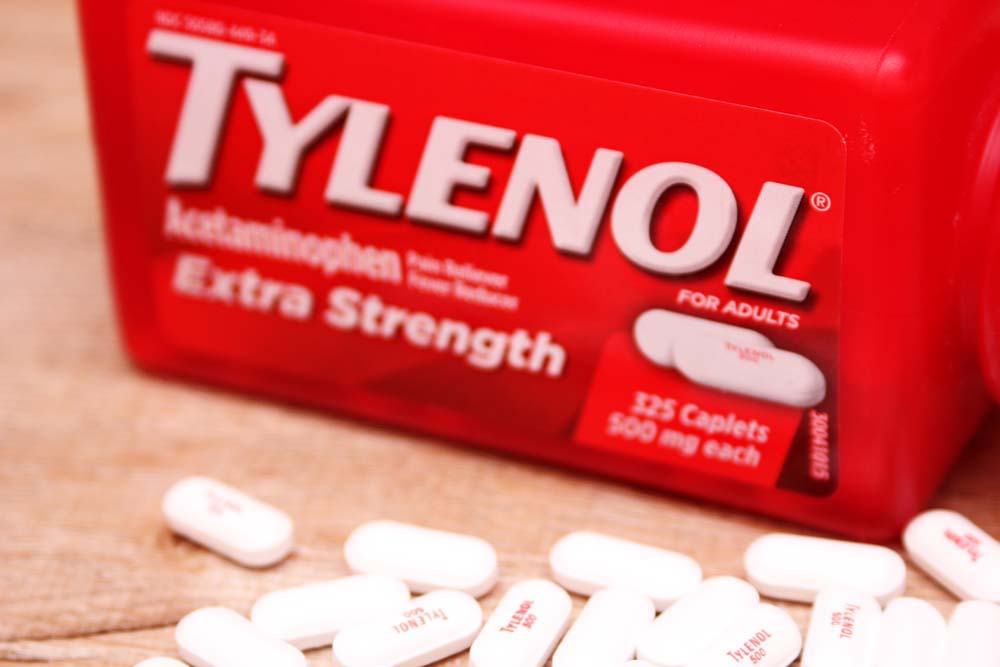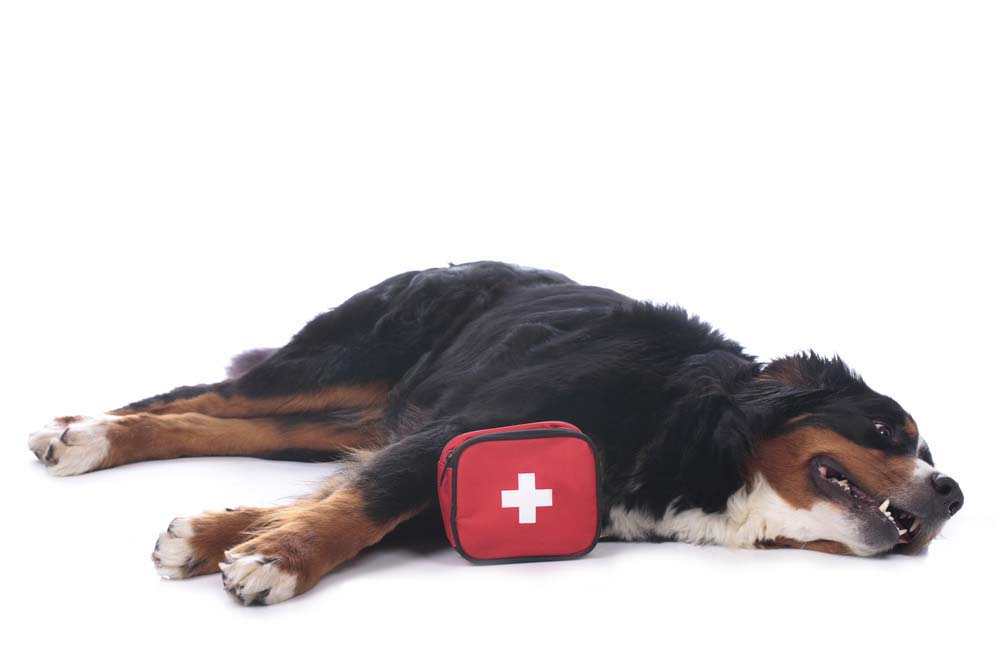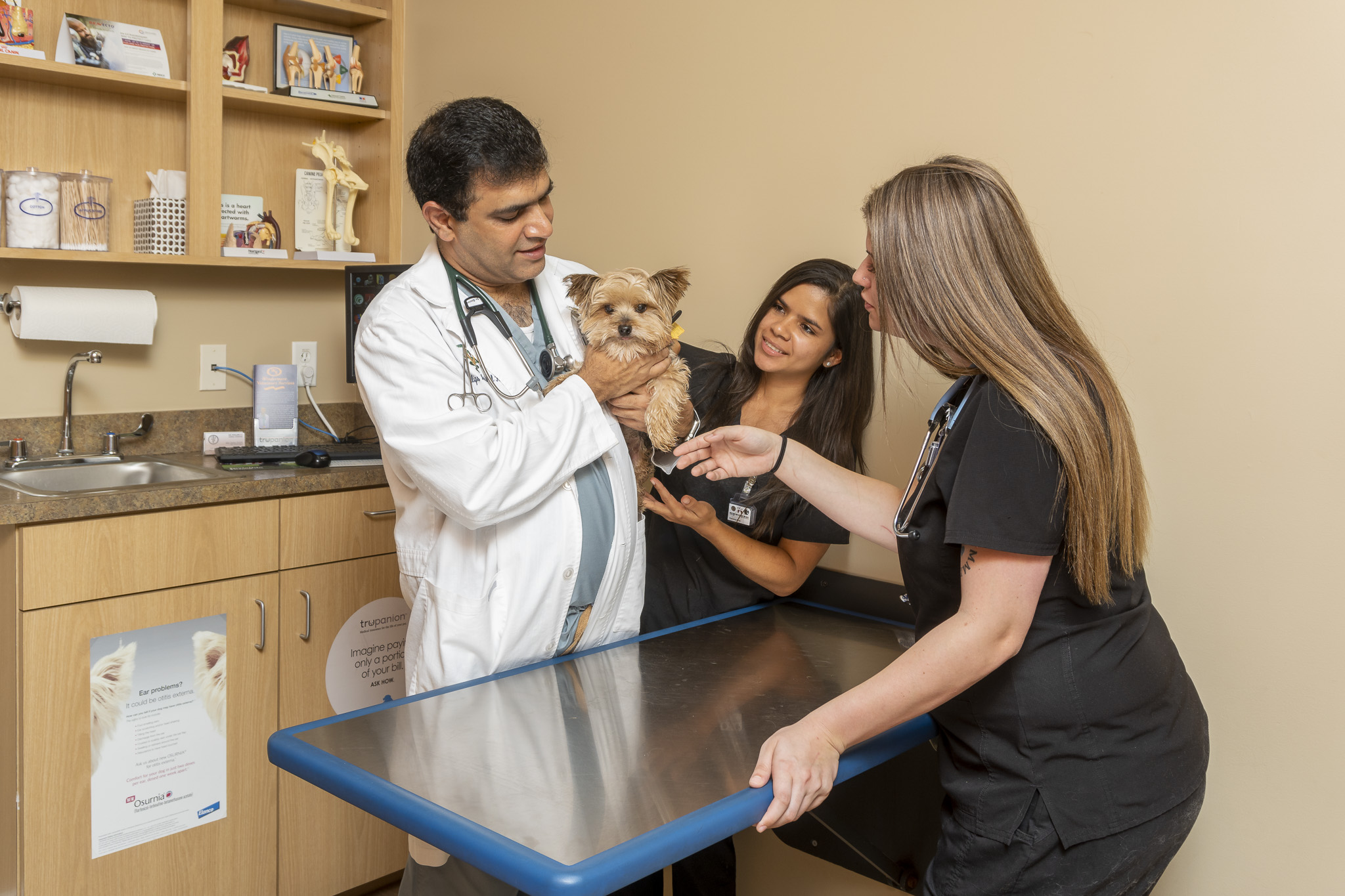
We're here for you
Emergency?
If your pet is exhibiting concerning symptoms or experiencing a medical emergency, please call our clinic at (407) 352-2579. We’ll help you through it.
Consuming Tylenol in moderation can be a simple way for humans to relieve some everyday pain or muscle aches. However, dogs have different digestive sensitivities and are unable to break down some of the enzymes of the acetaminophen that is contained in Tylonel, both the solid and liquid forms.
Why Is Tylenol Unhealthy for Dogs?

Dogs have sensitive livers. Their livers can be especially sensitive to food or drugs that are highly acidic or contain pharmaceutical compounds that are meant for human digestive systems, such as acetaminophen. While humans can digest this compound, it can weaken a dog’s system entirely with the absence of the same digestive enzymes. Acetaminophen can affect a dog’s red blood cell strength and make it more difficult for them to transport blood throughout their body.
What Symptoms of Tylenol Poisoning Should You Check for?
If you notice that your dog ingested Tylenol, regardless of whether it’s liquid or solid, you should monitor their health for symptoms of Tylenol poisoning. Usually, these symptoms can take one to four hours to show, but sometimes they may show immediately. Here are the most common symptoms to check for:
- Dark or darkening urine
- Depression or little interest in normal activities
- Darkening gums (blue gums)
- Difficulty breathing
- Vomiting, nausea
- Face swelling
- Dry eyes
How Much Tylenol Will Harm Dogs?
Depending on the size of your dog, even just half a pill or a whole pill of Tylenol could be harmful. For liquid Tylenol, usually, anything over 100 mg can be extremely toxic. For a proper measure, consider 45 mg per pound of body weight of your canine which will be harmful. If your dog was not prescribed Tylenol for a specific health condition and ate or drank it on their own, immediate attention from a vet or poison control will be necessary.
Is a Small Amount of Tylenol Okay for Dogs?
Small amounts of Tylenol can still hurt a dog’s digestive system. While some dogs may need to take Tylenol as prescribed by a veterinarian for certain chronic health conditions, it is not advised for them to take it regularly due to the harmful side effects and long-term implications. Even just one pill of Tylenol can contain 325-500 mg of acetaminophen, depending on the strength. In most cases, 45 mg per body weight of a dog can be unhealthy.
Follow This Guide if Your Dog Eats or Drinks Tylenol

It’s understandable that you may be concerned about a dog getting into your medicine cabinet. Stay calm and follow this guideline when your dog eats or drinks any of your Tylenol.
Call a Poison Helpline
Since Tylenol can enter a dog’s bloodstream quickly, it’s important to call an animal poison control helpline for immediate assistance. Animal poison control centers can walk you through any at-home care, like giving your dog vitamin C or activated charcoal. However, in many cases, a poison control center may direct you to the nearest vet clinic for an in-person evaluation.
Take Your Dog to See a Vet
After getting immediate attention from a poison control professional, your dog will need to be assessed in a medical clinic. A vet can conduct individual testing for your canine and even create a treatment plan tailored to their individual situation. Depending on a dog’s age, size, and previous health conditions, they may need to try different treatment plans. Even if your dog only consumed a small amount, it still is worth seeing a vet for peace of mind that what they consumed is not at the dangerous level
Follow a Veterinarian's Treatment Plan
If your dog ate or drank Tylenol over the safe amount, treatment will be necessary to get the drug out of their digestive system.
What Are Some Treatment Options for Tylenol Consumption in Dogs?
Some of the treatments a vet may recommend include:
- Activated charcaol
- Vitamin C
- N-acetylcysteine
- Induced vomiting
- Blood monitoring
- Oxygen therapy
- Blood transfusion
- Intravaneous fluids
- Liver protectant drugs
How Do Dogs Recover from Eating or Drinking Tylenol?
The liver damage possible from Tylenol can sometimes be permanent. However, if you act quickly after a dog eats or drinks Tylenol a vet can help get the drug out of their digestive system and bring them back to health. After a few days of treatment, the acetaminophen will be safely out of their system.
What to Do in the Future
To avoid the possibility of Tylenol toxicity in dogs, it's crucial that extra precautions are taken to keep all prescribed or over-the-counter pharmaceuticals out of the reach of your pets. Whether you keep some in a cabinet somewhere or in your bag, be sure to keep all containers sealed and hidden so dogs don’t mistake it for a treat. If you notice your dog is in pain, always consult with a vet before administering any medication.

Step One:
Call us to book your pet’s appointment.

Step Two:
Our expert vet will take care of all of your pet’s needs.

Step Three:
Get back to enjoying your happy and healthy life with your furry best friend.

Get the Best Care for Your Pet
Come Visit Dr. Qasim
Book your pet’s appointment with Dr. Qasim to ensure a long, happy life together.

We love and care for each patient as if they were our own pet.
Meet Our Team of Animal Lovers
Dr. Bilal Qasim, DVM, established Dr. Phillips Animal Hospital in 2011 after practicing veterinary medicine for over 17 years with the help of talented and caring veterinary technicians.


